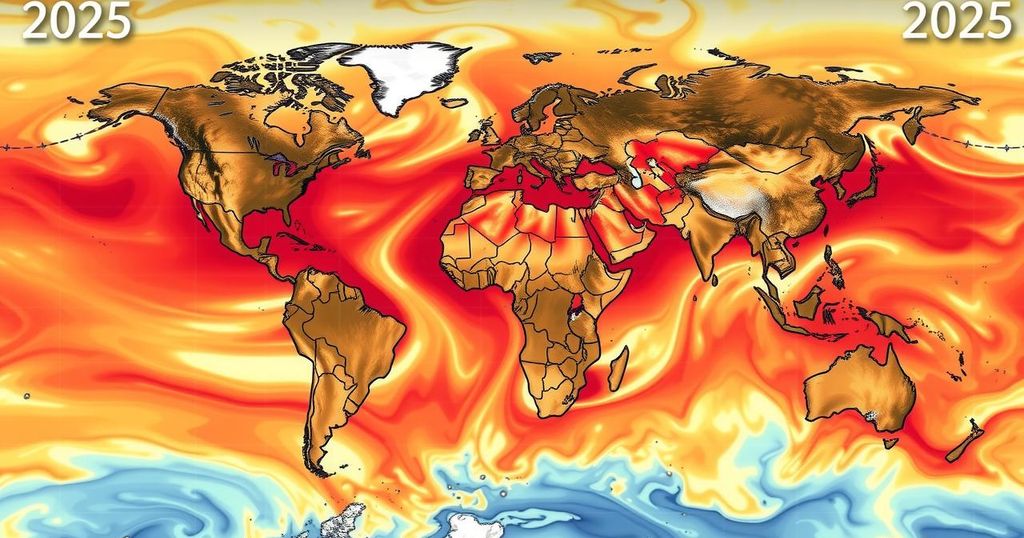2024 Predicted to Be Hottest Year on Record, Impacts to Extend into 2025
According to EU scientists, 2024 is set to be the hottest year on record, with global temperatures expected to remain elevated into 2025. Despite possible cooling from La Nina, the long-term warming trend due to human-induced climate change is expected to continue, leading to severe weather events globally.
The year 2024 is projected to be the hottest on record, with exceptionally high temperatures extending into the early months of 2025, according to scientists from the European Union. Data from the Copernicus Climate Change Service (C3S) confirms that 2024 will be the first year to witness average global temperatures rise above 1.5 degrees Celsius (2.7 degrees Fahrenheit) over pre-industrial levels. Enhanced climate-related disasters such as severe droughts, floods, and heatwaves have characterized this year.
The C3S report highlights the extreme weather events, including droughts in Italy and South America, floods in Nepal and Europe, and lethal heatwaves across regions such as Mexico and Saudi Arabia. These incidents underscore the undeniable link between human-induced climate change and these cataclysmic events. With CO2 emissions from fossil fuel combustion at record levels despite global pledges to reduce them, the situation remains dire.
Looking ahead, scientists note that while 2025 may experience a slight cooling trend due to possible La Nina conditions, this does not imply that global temperatures will return to safer levels. Ongoing emissions will continue to drive high temperatures and result in dangerous climate impacts, including heatwaves, droughts, and storms. The global community must confront these challenges urgently to mitigate future environmental crises.
The rising global temperatures linked to climate change have been a pressing concern worldwide. The Copernicus Climate Change Service, an initiative by the European Union, compiles climate data and monitors changes in global temperature patterns. In recent years, notable climate events have become increasingly severe, with catastrophic incidents attributed directly to climate change. Understanding the causes of these events and the trajectory of climate patterns is vital for global policy and environmental conservation efforts.
In summary, 2024 is anticipated to be the hottest year on record, further illustrating the severity of climate change. The potential for slight cooling in 2025 due to La Nina should not mask the ongoing climate threats driven by high CO2 emissions. Urgent action is necessary to combat these escalating climate-related disasters and to work towards sustainable solutions.
Original Source: www.onmanorama.com




Post Comment